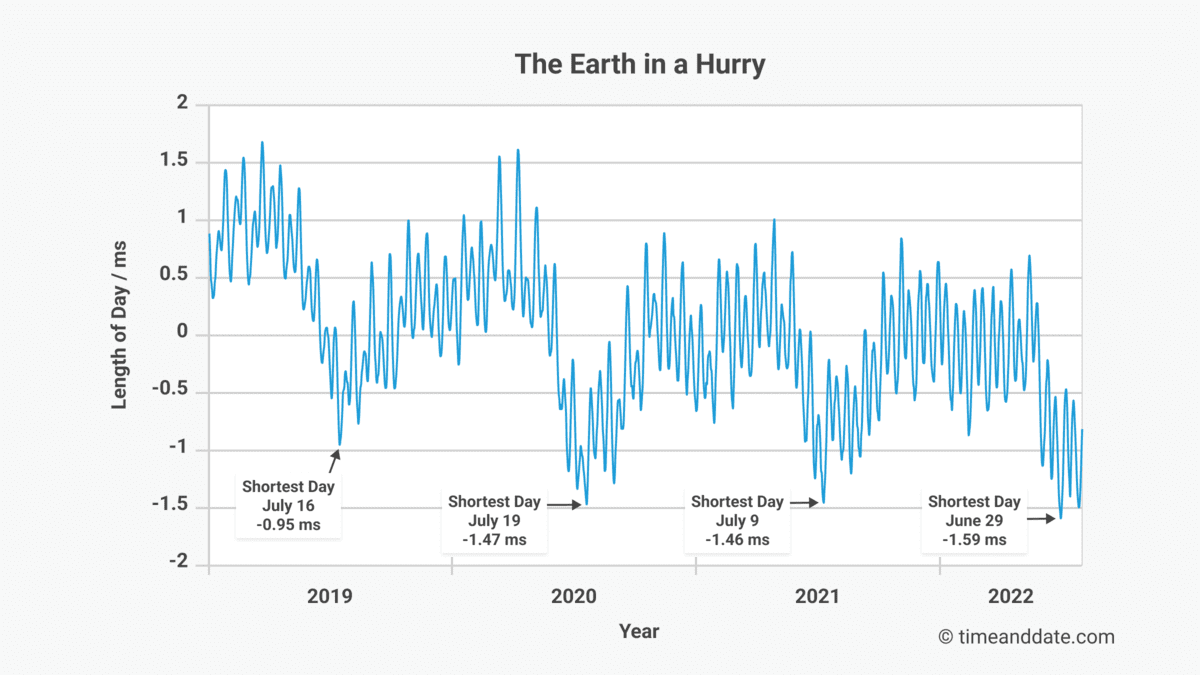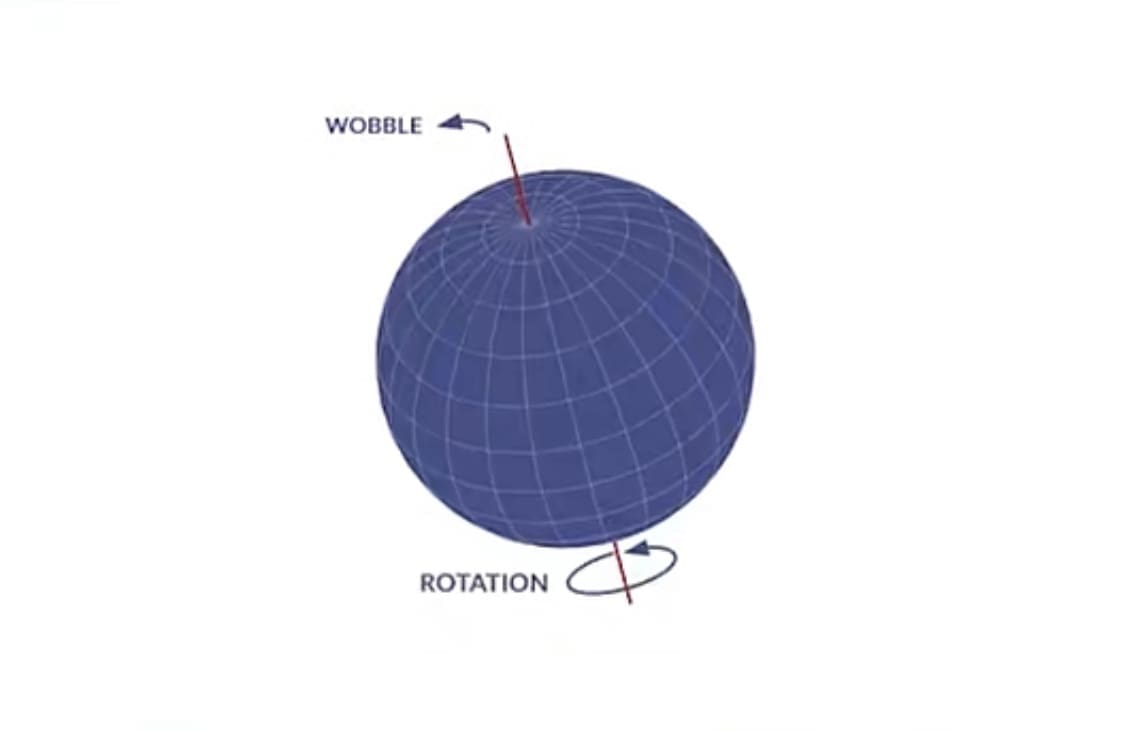Earth just broke the record for the shortest recorded day in modern history. What does this mean?
Zach BlassWatch lovers are obsessed with accurate timekeeping, and brands always look to standout with various certifications – whether COSC, METAS or Superlative Chronometer standards among others. Every time I set my watch, I always sync it – to the second – to my Watchville app clock, which effectively displays my iPhone’s highly synchronised time based on an atomic clock. But, this June scientists recorded the shortest ever day since the advent of the atomic clock. And, if days continue to shorten, it may have an effect on timekeepers around the world.

Fluctuations in day length are nothing new, and are the result of a variety of factors – such as the earth’s position in relation to the moon and shifts in climate. On June 29, however, an anomaly was recorded. That date now holds the record for the Earth’s shortest ever day in the modern era, 1.59 milliseconds shorter than days previously recorded. This comes in the wake of 2020, when the 28 shortest days were recorded since daily measurement began. Typically, over time, the Earth’s rotation has been observed to be slowing over time. But, recently it seems this rotation is ramping up.
Since this record-breaking day length was recorded, a few scientists have began to explore potential answers as to why this is happening. One potential cause is the so-called “Chandler wobble” that refers to a deviation in the spin of Earth on its axis.
Timeanddate explains: “At next week’s annual meeting of the Asia Oceania Geosciences Society, Leonid Zotov – together with his colleagues Christian Bizouard and Nikolay Sidorenkov – will suggest the current decrease in the length of day could have some relation to the ‘Chandler wobble’.”
Dr Zotov told timeanddate: “The normal amplitude of the Chandler wobble is about three to four metres at Earth’s surface, but from 2017 to 2020 it disappeared.”
Another possible reason, according to CNN, may have to do with the changing climate. The Earth is not a perfect sphere, measuring slightly wider than tall. But, with the poles melting, Dennis McCarthy, retired director of time at the US Naval Observatory, explained to CNN that there is now “less pressure on on the top and bottom of the planet, which moves the crust up and makes the Earth rounder. The circular shape helps the planet spin faster… As the Earth becomes rounder, its mass becomes closer to its centre, which increases its rotational speed.”
What does this mean for timekeeping? Well, if shortened days were to continue it could potentially lead to the first-ever introduced “negative leap second”. Timeanddate explains: “This would be required to keep civil time—which is based on the super-steady beat of atomic clocks—in step with solar time, which is based on the movement of the Sun across the sky. A negative leap second would mean that our clocks skip one second, which could potentially create problems for IT systems.”
Fortunately, unless you are incredibly anal, this will not largely affect your mechanical timekeeping experience in regard to accuracy – perhaps gaining an extra second when the leap occurs. And, according to Dr Zotov in his conversation with timeandate, there is a 70% chance we have already reached the minimum length of a day and that we will not need a negative leap second.
Regardless, isn’t time so fascinating.






